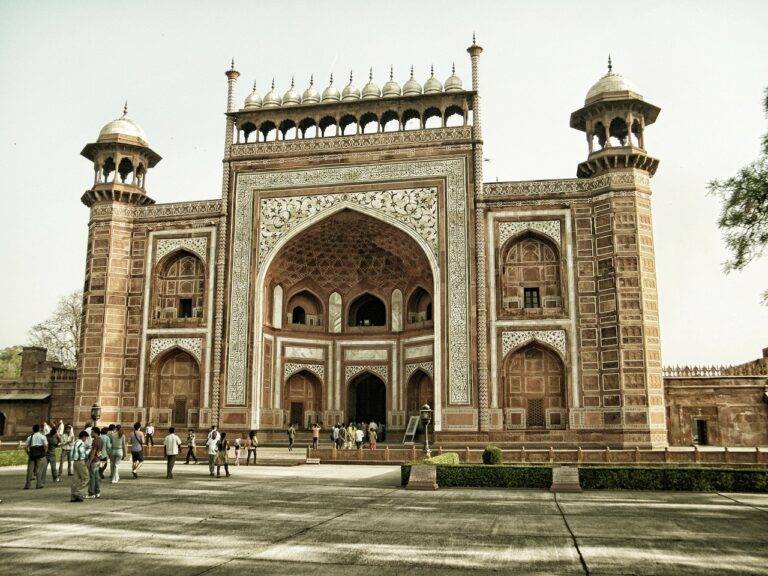Trends in Political Campaign Design: Cricket bet 99 login, Sky11 live, Reddy book id
cricket bet 99 login, sky11 live, reddy book id: In today’s fast-paced world of politics, misinformation and fake news can spread like wildfire. That’s why fact-checking is more important than ever in political campaigns. It’s crucial for voters to have access to accurate information about candidates and their policies so they can make informed decisions at the polls.
What is fact-checking?
Fact-checking is the process of verifying the accuracy of statements made by politicians, candidates, and other public figures. Fact-checkers analyze claims, statistics, and other information to determine whether or not they are true. This helps to ensure that voters have access to reliable information when evaluating candidates and their platforms.
Why is fact-checking important in political campaigns?
1. Combatting misinformation: In an age of social media and 24-hour news cycles, misinformation can spread quickly. Fact-checking helps to debunk false claims and prevent misinformation from influencing voters.
2. Holding candidates accountable: Fact-checking holds candidates accountable for the statements they make during political campaigns. When false or misleading information is uncovered, it can damage a candidate’s credibility and reputation.
3. Promoting transparency: Fact-checking promotes transparency in politics by providing voters with accurate information about candidates and their policies. This helps to build trust between politicians and the public.
4. Educating voters: Fact-checking helps to educate voters about important issues and policies. By providing accurate information, fact-checkers empower voters to make informed decisions at the polls.
5. Upholding democracy: In a democratic society, it’s essential that voters have access to truthful information. Fact-checking plays a critical role in upholding the integrity of the electoral process.
6. Preventing manipulation: Fact-checking helps to prevent the manipulation of public opinion by exposing false or misleading information. By shining a light on the facts, fact-checkers help to ensure that voters can make decisions based on reality, not fiction.
How do fact-checkers verify information?
Fact-checkers use a variety of methods to verify the accuracy of information, including:
1. Reviewing primary sources: Fact-checkers examine primary sources, such as speeches, reports, and documents, to verify the accuracy of claims made by politicians.
2. Consulting experts: Fact-checkers consult with experts in various fields, such as economics, science, and law, to verify the accuracy of complex claims and statistics.
3. Conducting interviews: Fact-checkers may reach out to politicians and their staff to request additional information or clarification on statements made during political campaigns.
4. Using fact-checking tools: Fact-checkers use specialized tools and databases to verify information, such as LexisNexis and FactCheck.org.
5. Collaborating with other fact-checkers: Fact-checkers often collaborate with other organizations and news outlets to verify information and ensure its accuracy.
The role of fact-checking in the digital age
In today’s digital age, fact-checking plays a crucial role in keeping the public informed and holding politicians accountable. With the rise of social media and online news sources, it’s easier than ever for false information to spread rapidly. Fact-checkers play a vital role in countering this trend by scrutinizing claims and providing accurate information to the public.
Despite the importance of fact-checking, it’s essential for voters to be vigilant and critically evaluate information from a variety of sources. By staying informed and fact-checking information themselves, voters can help to combat misinformation and make informed decisions at the polls.
FAQs
How can voters fact-check information themselves?
Voters can fact-check information themselves by using reliable sources, such as fact-checking websites like PolitiFact and FactCheck.org. It’s also helpful to consult multiple sources and cross-reference information to ensure its accuracy.
What should voters do if they encounter misinformation?
If voters encounter misinformation, they should report it to fact-checking organizations, news outlets, and social media platforms. By calling attention to false information, voters can help to prevent it from spreading further.
How can politicians improve their fact-checking practices?
Politicians can improve their fact-checking practices by being transparent and accountable for the information they share. They should also be open to scrutiny and willing to correct any false or misleading statements.
In conclusion, fact-checking plays a crucial role in political campaigns by promoting transparency, combating misinformation, and holding candidates accountable. By staying informed and critically evaluating information, voters can make informed decisions at the polls and uphold the integrity of democracy.







